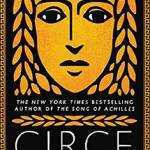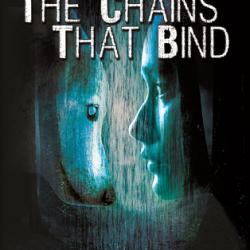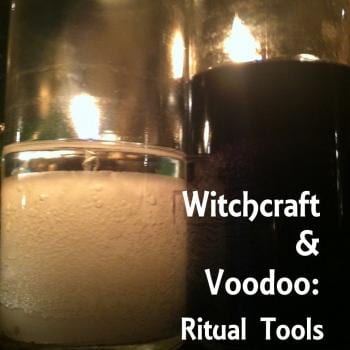The following article is the transcription of the second half of Witchcraft & Voodoo Episode 9: Ancestors, which aired on Lilith’s YouTube channel on Monday May 21st. Episode 10 was aired on my YouTube channel on Monday, June 4.
Transcription resumes at 19:45:
LILITH: No, I agree! I agree! I mean, I did get my kids vaccinated; I got them half vaccinations, which is a thing, in case anybody knows that! (laugh) But, you know, and I do! I think it’s a bit .. it’s, again, it’s this folly about their own mortality. You know what I mean? Like this — this is something that’s very serious! And I think that because we’re so cushioned, and, you know, the life expectancy has gotten so high that we don’t necessary deal with it. Some of us, like I mentioned, deal with it more than others. Unfortunately, you know, but for a lot of people it is something that’s distant, and it’s something they want to avoid, and not look at, and not be realistic about. And I think that being in touch with your ancestors gives you a-whole-nother level of realism. We were talking about losing a child. You know, when I lost my daughter, I thought about my grandmother who lost, you know, more than one child. (laugh) More than one child that was already born. You know, so again, I think that it definitely gives you sort of a perspective on things; which is … you know, you might think you’re having a bad day — We were talking before about having a bad day, because, you know, whatever … I knocked the plugs out, and I broke a glass, I couldn’t find my eyeliner …
SABLE: I had to replace my headphones before we could do this … (laugh)
LILITH: (laugh) Yeah!
SABLE: Yeah, it was one of those days today! (laugh)
LILITH: Yeah, it gives you a perspective about a bad day, and you know, the kind of bad days — my grandparents went through the Depression, and things like that! It definitely gives you … you know, it gives perspective to, “Oh my gosh, I’m definitely not going to be annoyed by having to wait 20 minutes to get out of line in the grocery store!” You know, like that’s so — At least there is food, and at least I can afford to have food, and I think this is something that a lot of people take for granted, and our grandparents didn’t.
SABLE: Yeah, well, you’re right! Like, I agree with you completely! For me, the big run-ins with mortality were first, that miscarriage, right, that I spoke of, because I had done everything right, and it all went wrong anyway; and … uh oh. I’m frozen up again, aren’t I?
LILITH: You’re frozen up.
SABLE: It says, “Your internet connection is unstable again.” Okay, so, there. Am I back?
LILITH: No, you’re still frozen.
SABLE: Am I still with you? I’m …
LILITH: There you go, now you’re back. Yay!
SABLE: Now I’m back. Okay. So, where did you lose me? The miscarriage?
LILITH: Yes. I could hear you, but I didn’t see you. So, yes.
SABLE: Okay. Right. So for me, the big run-in with my mortality was first, the miscarriage, because I’d done everything right, but it all went wrong anyway. So there went the illusion that, you know, if you eat all the right foods, and, you know, exercise, and avoid bad things for you, that you’re going to be just fine; because … you don’t know, right? It can happen to anybody at any time. And the other one for me was when my husband was in that awful car accident, because they gave him a zero percent chance of survival. He made it, but they didn’t think he was going to, and that was a real wake-up call for me.
And it’s because I have been really insulated to that in my culture. Now since then, of course, I’m getting older now. Right? I’m in my mid-forties, I’m – you know, I’m at an age where I’m starting to lose friends who have not necessarily … you know, one good friend of mine died of pancreatic cancer, you know; another friend had a heart attack — he was younger than I am — you know, and … you know, you realize that death is not going away, and there’s nothing you can do to avoid it. It’s going to come for you sooner or later, so … But if you have that connection with first, your elders, and then, your ancestors, then you can – you know, you’ve already realized that. You’ve already made that connection. And I think you’re better prepared. Right?
So this is probably … this is why I feel very strongly that we need to … well, we who come to Paganism are trying to re … well, I don’t know; the Afro-Caribbean traditions have their own integrated way of dealing with it, obviously, which I think is awesome and I admire, right? But over here, I feel like we’re reinventing the wheel in a lot of cases. We’re trying to reinvent traditions that used to exist, but don’t really exist anymore. Because most of Western – white Western culture anyway, it was always — the church was the place you went to deal with that. And of course, we’re not going to the church; we’re not finding our solace there. So we have to find different things, different ways to communicate. Um … so I’d like to recommend a book. It’s called “The Pagan Book of Living and Dying.” It’s put out by Starhawk, M. Macha Nightmare, and Reclaiming — If I remember correctly that’s who was listed as the author — and this … This was very good for me, in finding ways to connect with ancestors and deal with death, and grief, and loss, and all of these things that we all have to individually do in our lives, so that’s … that’s something I would suggest.
I think that the Norse Pagans have a much better grasp of this whole business than the Wiccans do! I’ve gotta …
LILITH: (laugh)
SABLE: I’ve gotta give them credit there. They’re very much in touch with their ancestors, and … I mean — sometimes I think they over-fetishize it a little bit, and then that gets into some dark territory, but in general, I think they’ve really got … you know, they’ve figured that out, and we could take notes, you know?
LILITH: Uh … yeah, I agree with you. I think that they do, and I think it’s … it’s kind of two-fold, I think. I mean, I think part of it has to do with, in a lot of ways — I grew up going to Norwegian Lutheran school, that’s a-whole-nother story — but I think in a lot of ways — it was all about the Vikings and Norse culture — but I think in a lot of ways they were much more — you know, compared to the other ethnic groups that I saw here in the U.S. and abroad, that they were much more cohesive about their history. That it was much more of a … you know, importance given to it; whereas we don’t do that as much here that I’ve seen. You know. And, I mean, from the religion-wise, I think that there’s … you know, um … I’m really fond of … I love Diana Paxson, and we’ve been friends for ages, and I think Diana’s done a lot of work in the community to sort of … you know, give people honourable ways that they can sort of incorporate these energies into their lives. You know, through her trance possession work and things like that. So, yeah, I’ll say that about the Norse people! (laugh)
But what I love about our thing, too, is that it really … it’s a two-way street. You know? The way our cosmology works is that … you know, if I live a good life, if I help a lot of people, if I’m a good person, then after I’ve passed, then people will honour me on their ancestor altars, and that will help elevate me, even after I’ve gone. You know. My godkids make jokes about leaving White Castle cheeseburgers on the altar for me! (laugh)
SABLE: (laugh) That’s great!
LILITH: (laugh) Yeah, and valleys of green stuff.
SABLE: Good stuff!
LILITH: Yeah, that’s what they would put there for me, to elevate me. And … but, you know, that’s the way it is. And it’s sad to say, my godmother … I just lost one of my Santo godmothers this year, you know, and she was a young woman, and … You know, having to help do the Elevation, and dealing with her stuff has been very hard, you know? But she was a good person, and hopefully she’ll have enough ashe and energy from all of her godchildren, me included, that will help to elevate her on her journey. You know, that’s what we hope for. That’s all we can hope for.
SABLE: We’ve got a similar concept in witchcraft. Not … I guess some people believe in a form of elevation. Not everyone does. Some people think it’s presumptuous. … Whatever, in my opinion.
LILITH: (laugh)
SABLE: But, uh … we say, “What is remembered, lives.” So the memory … keeping the memory alive of those who have gone before us is very important, because then they remain, right? So, hopefully, if … like you say, if you live a good life, right, you want people to remember you, and then you continue on after you’re gone, and then you maintain sort of a connection to what’s going on. I- I think we all — Judy Harrow wrote in her excellent book “Wicca Covens” that most of us have an urge to, you know … generativity, right? We want to create a legacy in some way. And a lot of us resolve this by having children, and some of us resolve this by trying to create great works of art, and some of us resolve this by trying to create community and reach out and help people; but whatever form you’re using to do that, ultimately, you want to leave your impact on the world. That’s what drives us to do that. We want to improve the world and make it a better place after we’re gone. We want those who follow us … you know, our children, our grandchildren, our nieces … you know, our students, whatever it might be — we want them to have a better world than the one that we lived in, and have better chances than we had, so we’re all trying to contribute in that way. And I think that all our ancestors did, and do, do the same thing. So … I mean, isn’t it a good idea to want to know what those gifts were that they were trying to leave us? And, you know, doesn’t that … If you understand that, I think it makes it easier to overcome … I mean, every family’s got its dysfunction, right? So it makes it easier for you to address the dysfunctions in your own family, and find connection and forgiveness, even if your relationship with your nuclear family has been toxic, right? So .. another – another good reason to do that.
LILITH: Yeah, I agree. I mean, people are always asking me about what to do with, you know, ancestors that they didn’t like. You know, and I always say, “If you wouldn’t invite them in your house when they were alive, you know you don’t have to invite them in after they’ve passed! You know?” (laugh) You know! Like, some of us come from some real nasty pieces of work out there, you know? But I think, just … understanding, you know, some of the people even maybe around those people, that … you know, like I said, if they were horrible, don’t invite them into your house. But you know, maybe some of the other people in your life that you didn’t even get a chance to know, you know? People who passed before you were born, you know? I think that this is a wonderful way of being able to access, you know, that kind of knowledge, and energy, and information. And … what else was I going to say? This is going long! (laugh)
SABLE: (laugh)
LILITH: I could talk about ancestors all night! (laugh)
SABLE: Yeah, fair enough! I’l just throw in there, based on what you just said, that … okay, I believe in spirits that continue on in some form that sometimes maintain connection with the world. Some people call them “ghosts.” Okay? How I believe you should treat them is this: dead people are people too. (laugh) So they come in wonderful, and jerk, and they stay too long after the party, and they are rude, and while … you know, and sometimes they’re really nice and helpful, and sometimes they’re all of these things at once, depending on the different occasion, and … You know, I believe that their existence doesn’t … you know, they know things that time and space limit us from knowing as physical beings, but that doesn’t mean they’re always right, and it doesn’t mean that you should … you know, just drop everything when they show up. If anything, they’ve got more time than you do. So if you’re a medium-type, and you’ve got ghosts waking you up at two o’clock in the morning, tell them to damn well wait until nine o’clock, and you know, you’ve had your coffee, right? Because, you know, they can wait!
LILITH: Yeah, right.
SABLE: But, be respectful. Right? Because — yeah, they do know things you don’t, and they’ve lived experiences that you haven’t. So, just as you would go to your elders and ask them about experiences, so you should approach the ancestors.
LILITH: I agree.
All right, everybody! Well, thank you so much for joining us for this renewed — YAAAAYYY! — episode of witchcraft and Voodoo! It’s fantastic! And we’re going to keep doing more of them, hopefully, and … yeah. You can find me at lilithdorsey.com; you can find Sable at … you wanna tell them where?
SABLE: sablearadia.com.
LILITH: (laugh) All right! We make it easy!
SABLE: Yeah! And this isn’t … obviously we’re not doing a livestream format anymore, but, as always, if you have questions, or you have suggestions for topics, or whatever else, feel free to put them in the comments, contact us at our websites, post them on our social media; we’re both on Twitter, you can search us both under our names there … Right? Let us know.
LILITH: All right! Yay! Bye!
SABLE: Bye everybody!
LILITH: (laugh)
















